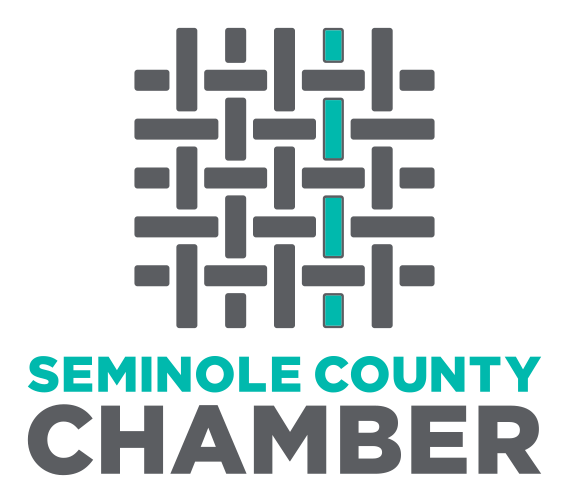In Florida, it is common for homeowners or condominium owners to live in a community with a Homeowners Association or a Condominium Owners Association, generally referred to as an HOA or a COA, respectively. Associations are commonly found in housing or property developments where people share a common area or amenities, such as:
- Planned or private neighborhoods.
- Subdivisions.
- Gated communities.
- Condominiums.
- Townhome complexes.
- Apartment buildings.
While the overall goal of most HOAs or COAs is to improve living standards within the community and maintain or increase property values, part of an HOA or COA’s responsibilities also include protecting the health, safety and welfare of the community which they serve. This mission is sometimes put to the test when an emergency situation arises within the community, such as during a natural disaster, during a health crisis such as a pandemic, or during a time of civil unrest. To include some more recent examples, many local HOAs and COAs faced challenges as to how to provide a proactive yet effective response during the COVID-19 pandemic and, more recently, during Hurricane Ian.
Certain emergency situations may call for a rapid response and thorough preparation from the HOA or COA in order to safeguard the wellbeing of the community. To this end, an Association’s ordinary powers can sometimes be expanded during times of emergency. These expanded powers are typically referred to as “emergency powers,” and can serve as a key source of guidance and leadership during crises.
The authority of HOAs and COAs to enforce their rules and regulations is rooted in statutory authority. Chapter 720 of the Florida Statutes empowers and controls the ability of HOAs to enforce their rules in Florida, whereas Chapter 718 of the Florida Statutes empowers and controls the ability of COAs to enforce their rules in Florida. In regard to the issue of emergency powers for HOAs and COAs, Florida Statute 720.316 provides guidance as to HOAs, while Florida Statute 718.1265 sheds light on powers for COAs.
As to emergency powers for HOAs, Florida Statute 720.316 states, in summary:
(1) To the extent allowed by law, unless specifically prohibited by the declaration or other recorded governing documents, and consistent with s. 617.0830, the board of directors, in response to damage or injury caused by or anticipated in connection with an emergency, as defined in s. 252.34(4), for which a state of emergency is declared pursuant to s. 252.36 in the area encompassed by the association, may exercise the following powers:
(a) Conduct board meetings, committee meetings, elections, or membership meetings, in whole or in part, by telephone, real-time videoconferencing, or similar real-time electronic or video communication after notice of the meetings and board decisions is provided in as practicable a manner as possible.
(b) Cancel and reschedule an association meeting.
(c) Designate assistant officers who are not directors.
(d) Relocate the association’s principal office or designate an alternative principal office.
(e) Enter into agreements with counties and municipalities to assist counties and municipalities with debris removal.
(f) Implement a disaster or an emergency plan before, during, or following the event for which a state of emergency is declared, which may include, but is not limited to, turning on or shutting off elevators; electricity; water, sewer, or security systems; or air conditioners for association buildings.
(g) Based upon the advice of emergency management officials or public health officials, or upon the advice of licensed professionals retained by or otherwise available to the board, determine any portion of the common areas or facilities unavailable for entry or occupancy by owners or their family members, tenants, guests, agents, or invitees to protect their health, safety, or welfare.
(h) Based upon the advice of emergency management officials or public health officials or upon the advice of licensed professionals retained by or otherwise available to the board, determine whether the common areas or facilities can be safely inhabited, accessed, or occupied.
(i) Mitigate further damage, injury, or contagion, including taking action to contract for the removal of debris and to prevent or mitigate the spread of fungus, including mold or mildew, by removing and disposing of wet drywall, insulation, carpet, cabinetry, or other fixtures on or within the common areas or facilities or sanitizing the common areas or facilities.
(j) Levy special assessments without a vote of the owners.
(k) Without owners’ approval, borrow money and pledge association assets as collateral to fund emergency repairs and carry out the duties of the association if operating funds are insufficient.
As to emergency powers for COAs, Florida Statute 718.1265 states, in summary:
To the extent allowed by law, unless specifically prohibited by the declaration of condominium, the articles, or the bylaws of an association, and consistent with s. 617.0830, the board of administration, in response to damage or injury caused by or anticipated in connection with an emergency, as defined in s. 252.34(4), for which a state of emergency is declared pursuant to s. 252.36 in the locale in which the condominium is located, may exercise the following powers:
(a) Conduct board meetings, committee meetings, elections, and membership meetings, in whole or in part, by telephone, real-time videoconferencing, or similar real-time electronic or video communication with notice given as is practicable.
(b) Cancel and reschedule any association meeting.
(c) Name as assistant officers persons who are not directors.
(d) Relocate the association’s principal office or designate alternative principal offices.
(e) Enter into agreements with local counties and municipalities to assist counties and municipalities with debris removal.
(f) Implement a disaster plan or an emergency plan before, during, or following the event for which a state of emergency is declared which may include, but is not limited to, shutting down or off elevators; electricity; water, sewer, or security systems; or air conditioners.
(g) Based upon advice of emergency management officials or public health officials, or upon the advice of licensed professionals retained by or otherwise available to the board, determine any portion of the condominium property or association property unavailable for entry or occupancy by unit owners, family members, tenants, guests, agents, or invitees to protect the health, safety, or welfare of such persons.
(h) Require the evacuation of the condominium property in the event of a mandatory evacuation order in the locale in which the condominium is located.
(i) Based upon advice of emergency management officials or public health officials, or upon the advice of licensed professionals retained by or otherwise available to the board, determine whether the condominium property, association property, or any portion thereof can be safely inhabited, accessed, or occupied.
(j) Mitigate further damage, injury, or contagion, including taking action to contract for the removal of debris and to prevent or mitigate the spread of fungus or contagion, including, but not limited to, mold or mildew, by removing and disposing of wet drywall, insulation, carpet, cabinetry, or other fixtures on or within the condominium property.
(k) Contract, on behalf of any unit owner or owners, for items or services for which the owners are otherwise individually responsible, but which are necessary to prevent further injury, contagion, or damage to the condominium property or association property.
(l) Regardless of any provision to the contrary and even if such authority does not specifically appear in the declaration of condominium, articles, or bylaws of the association, levy special assessments without a vote of the owners.
(m) Without unit owners’ approval, borrow money and pledge association assets as collateral to fund emergency repairs and carry out the duties of the association when operating funds are insufficient.
Taking a closer look at both of the above statutes, it can be seen that emergency powers may only be exercised to the extent allowed by state and federal law, unless specifically prohibited by the governing documents of the Association. Furthermore, the Board of an Association may only exercise the above emergency powers in response to or in anticipation of an emergency, as defined in s. 252.34(4), for which a state of emergency is declared pursuant to s. 252.36 in the locale in which the Association is located. On the state level, a state of emergency may only be declared by executive order or proclamation of the Governor.
As such, it should be noted that the emergency powers an HOA or COA are limited, and the extent to which an HOA or COA can exercise these powers are always dependent on its governing documents, state law, and the nature of the emergency. Boards should also take into account that any emergency powers utilized by an HOA or COA Board must be exercised in a manner consistent with the board’s fiduciary duty to the community. An Association Board should be careful to balance its obligation to protect and look to the best interests of the community along with the limitations on its authority. A Board that over-extends its powers during an emergency may be viewed as domineering or even tyrannical, and is likely to lose the confidence and support of the community and its members.
However, the above language is not meant to scare Associations into never utilizing its emergency powers. After all, emergency powers were legally granted to HOAs and COAs for a reason – to protect the welfare of the community. HOAs and COAs should use their best discretion along with advice from expert legal counsel to determine what their emergency response should be. For instance, it may be wise for an Association to implement a disaster plan before, during or after an emergency, which could include turning off elevator or electrical systems at a designated time or organizing a volunteer team to help residents with reduced mobility to safely evacuate a disaster zone prior to an emergency. An Association could also conduct an emergency Board or member meeting to discuss a disaster response plan, for example.
In general, when preparing to respond to a disaster or emergency, advice and warnings issued by FEMA or other government agencies are a good place for an Association or Board to start. For instance, if FEMA is advising residents to evacuate, a COA or HOA, although it may lack the power to order homeowners to leave their homes, could use its communication channels, such as their website or social media pages, to spread the word and ensure all members have notice of FEMA’s directives.
The attorneys at The Orlando Law Group represent homeowners and condominium owners as well as HOAs and COAs in Orlando, Waterford Lakes, Altamonte Springs, Winter Garden, Lake Nona, St. Cloud, Kissimmee, and throughout central Florida.
If you are a homeowner, condominium owner, or an Association board member, please reach out to our office at 407-512-4394, fill out our online contact form or save this information in case you ever find yourself or a loved one needing to use it. We provide representation and legal services for both homeowners and Associations alike.
If you have questions about anything discussed in this article or other legal matters, give our office a call at 407-512-4394 or fill out our online contact form to schedule a consultation to discuss your case. We have an office conveniently located at 12301 Lake Underhill Rd, Suite 213, Orlando, FL 32828, as well as offices in Seminole, Osceola and West Orange counties to assist you.
The Orlando Law Group
-
Jennifer Englert Schmitt President
- July 12, 2023
- (407) 512-4394
- Send Email



